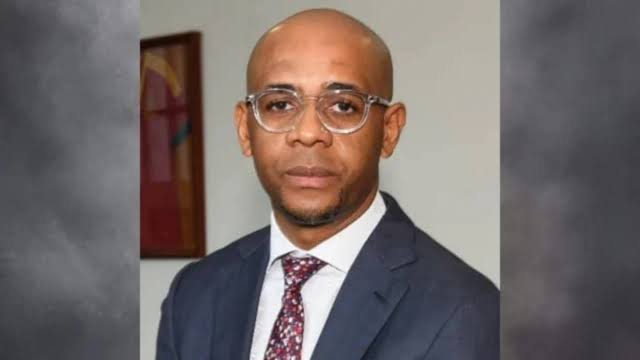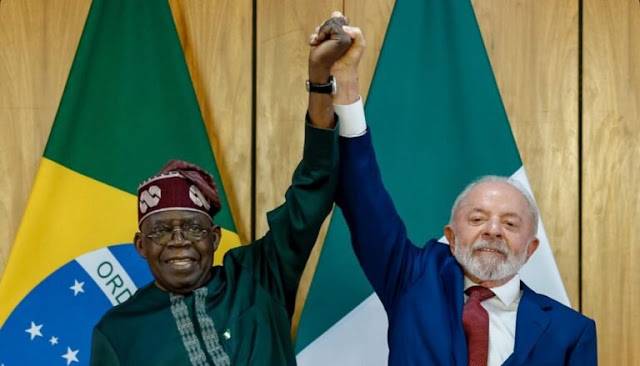In a landmark ruling that has sent shockwaves through Equatorial Guinea’s political elite, Baltasar Ebang Engonga, a former senior government official and once the head of the National Financial Investigation Agency (ANIF), was sentenced to eight years in prison on August 27, 2025, by the Bioko Provincial Tribunal in Malabo. The court found Engonga guilty of embezzling hundreds of thousands of dollars in public funds, specifically by diverting money allocated for professional travel expenses for personal use. In addition to the prison term, Engonga, popularly known by his nickname “Bello,” was ordered to pay a fine of $220,000, marking a significant moment in the oil-rich Central African nation’s ongoing struggle against elite corruption.
The case, which also implicated five other senior officials, has drawn intense scrutiny both domestically and internationally, not only for the financial misconduct but also for a sensational sex tape scandal that erupted in November 2024, thrusting Engonga into global headlines. The leaked videos, reportedly showing Engonga engaging in sexual acts with over 40 women, including the wives of prominent government officials, were allegedly filmed in various locations, including his office at the Ministry of Finance. The scandal sparked widespread ridicule, inspiring memes, parody songs, and even a satirical product named “Balthazariem”—a mock virility drug that capitalized on the controversy. Despite the viral attention surrounding the tapes, the court’s ruling focused squarely on the embezzlement charges, highlighting Equatorial Guinea’s efforts to address systemic corruption within its government.
Engonga’s conviction is a rare instance of accountability in a country where allegations of corruption have long plagued the political elite, fueled by the nation’s vast oil wealth. The case underscores the challenges of governance in Equatorial Guinea, where President Teodoro Obiang Nguema Mbasogo has ruled for over four decades, and raises questions about the broader implications for anti-corruption efforts, public trust, and the intersection of personal and professional misconduct in public office. This article explores the details of the case, its historical and political context, the societal impact of the scandal, and the broader implications for Equatorial Guinea’s governance and international standing.
The Embezzlement Case: A Web of Financial Misconduct
Baltasar Ebang Engonga, a 47-year-old economist and a well-connected figure within Equatorial Guinea’s political establishment, served as the Director General of the National Financial Investigation Agency (ANIF) until his dismissal in November 2024. The agency, tasked with combating financial crimes such as money laundering and corruption, was ironically at the center of the allegations against Engonga, who was accused of orchestrating a sophisticated scheme to siphon public funds for personal gain. The charges stemmed from his earlier tenure as head of the Directorate General of Insurance and Reinsurance (DGAR) between 2015 and 2020, during which he allegedly misappropriated over 1 billion CFA francs (approximately $1.5 million).
According to court proceedings, Engonga diverted funds earmarked for official travel expenses, using them to finance a lavish lifestyle that included extravagant spending on personal indulgences. The prosecution presented evidence of bank transfers, offshore accounts, and forged contracts, describing the case as “one of the largest financial betrayals of public trust in recent memory.” The Bioko Provincial Tribunal, presided over by a panel of judges, cited overwhelming evidence in its ruling, convicting Engonga of embezzlement and imposing an eight-year prison sentence along with a $220,000 fine.
Five other senior officials were also implicated in the scheme, including Carmelo Julio Matogo Ndong, Ireneo Mangue Monsuy Afana, and Florentina Iganga Iñandji, among others. These officials, who held positions within the Ministry of Finance and related state enterprises, were accused of collaborating with Engonga to misappropriate public funds over a 12-year period. The prosecution alleged that the group exploited their positions to divert contributions from Equatorial Guinean insurance companies, using the funds for personal enrichment rather than public purposes. While Engonga’s sentencing has been finalized, the trials of his co-conspirators are ongoing, with further details expected to emerge in the coming weeks.
Engonga’s defense team argued that the charges were politically motivated, aimed at silencing dissent within the country’s political elite. They claimed that the ANIF lacked a specific budgetary allocation, forcing Engonga to seek financial support from the Ministry of Finance to cover operational expenses, including travel. Engonga himself admitted to diverting insurance contributions to finance management trips, citing delays in payments from insurance companies as a justification. However, the court rejected these arguments, citing substantial evidence of intentional misconduct and personal enrichment.
The Sex Tape Scandal: A National and Global Spectacle
While the embezzlement charges formed the legal basis for Engonga’s conviction, the case was overshadowed by a sensational sex tape scandal that erupted in November 2024, shortly after his detention at Black Beach Prison in Malabo. During a fraud investigation, authorities reportedly discovered over 400 explicit videos in Engonga’s possession, allegedly depicting him engaging in sexual acts with more than 40 women, including the wives of senior government officials, family members, and personal aides. The videos, some of which were filmed in his office at the Ministry of Finance, hotels, restrooms, and even by a riverside, were leaked online and quickly went viral on social media platforms such as WhatsApp, Twitter, and Instagram.
The scandal, which broke while Engonga was already under investigation for financial misconduct, sparked a national outcry and captured global attention. The explicit nature of the videos, combined with the high-profile status of the women involved, fueled widespread ridicule and public outrage. Social media users created memes, parody songs, and dance skits, with some even referencing the scandal in popular culture, such as Nigerian artist Burna Boy’s hit track Tatata. A satirical product named “Balthazariem,” marketed as a spoof virility drug, emerged online, further amplifying the controversy and highlighting the public’s fascination with the scandal.
The videos, which appeared to show consensual encounters, raised significant ethical and legal questions about privacy, consent, and the misuse of public office. While the prosecution pursued charges related to financial misconduct, the Equatorial Guinean government also initiated proceedings against Engonga for professional misconduct related to the sex tapes, citing behavior “incompatible with the expectations of public office.” President Teodoro Obiang Nguema Mbasogo, Engonga’s uncle, issued a decree on November 4, 2024, dismissing him from his position at ANIF, emphasizing “irregularities in his duties and inappropriate family and social conduct.”
The scandal has had profound social and political repercussions in Equatorial Guinea, a country where the political elite are closely interconnected, and public trust in governance is fragile. The involvement of the wives of senior officials and family members in the videos sparked debates about power dynamics, privilege, and accountability within the government. Vice President Teodoro Nguema Obiang Mangue, the president’s son, condemned the scandal and signaled potential reforms to restore integrity in governance, emphasizing a zero-tolerance policy for actions that undermine public trust.
Equatorial Guinea’s Political and Economic Context
Equatorial Guinea, a small Central African nation with a population of approximately 1.5 million, is one of Africa’s largest oil producers, with significant wealth derived from its oil and gas reserves. However, this wealth is unevenly distributed, with a small elite, including members of President Obiang’s family, controlling much of the country’s resources. Obiang, who has been in power since 1979, making him the world’s longest-serving president, has faced criticism for authoritarian governance, human rights abuses, and systemic corruption. Engonga, as the son of the Chairman of the Central African Economic and Monetary Community and a nephew of President Obiang, is emblematic of the interconnectedness of the country’s political and economic elite.
The country’s oil wealth has fueled allegations of widespread corruption, with public officials accused of siphoning off state resources for personal gain. The embezzlement case against Engonga and his co-conspirators highlights the systemic nature of corruption in Equatorial Guinea, where public funds are often misused to support lavish lifestyles among the elite. The diversion of travel expenses, as seen in Engonga’s case, is just one example of how public resources are misallocated in a country where poverty remains widespread despite its oil riches.
The government’s response to the scandal, including Engonga’s conviction and the trials of other officials, suggests an effort to address public discontent and restore confidence in governance. However, critics argue that such actions are selective and often serve to settle political scores rather than address systemic issues. The fact that Engonga, a well-connected figure, was prosecuted and sentenced is notable, but it remains to be seen whether the government will pursue broader reforms to tackle corruption at all levels.
The Intersection of Financial and Personal Misconduct
The convergence of Engonga’s embezzlement charges and the sex tape scandal raises complex questions about the relationship between personal and professional misconduct in public office. While the court’s ruling focused on financial crimes, the sex tapes amplified the public’s perception of Engonga as a symbol of elite excess and moral decay. The videos, which were discovered during a fraud investigation, underscored the misuse of his office, both literally and figuratively, as some were allegedly filmed in his Ministry of Finance office—a space meant for public service.
The scandal has also sparked debates about privacy and consent in Equatorial Guinea, where the unauthorized release of the videos violated the privacy of those involved. While none of the women appeared to have been coerced, the public exposure of their identities caused significant personal and social harm, particularly given their connections to prominent figures. The government’s announcement of plans to bolster privacy and personal data protection laws in response to the scandal reflects a recognition of the need to address these issues, but implementation remains uncertain in a country with limited institutional transparency.
Engonga’s case also highlights the challenges of maintaining public trust in a government where personal and professional boundaries are blurred. As a senior official tasked with combating financial crimes, Engonga’s actions—both financial and personal—represent a betrayal of public trust, undermining the credibility of institutions like the ANIF. The scandal has fueled calls for greater accountability, transparency, and ethical standards in public office, with civil society groups and international observers urging the government to implement meaningful reforms.
Implications for Equatorial Guinea’s Governance
Engonga’s conviction marks a significant moment in Equatorial Guinea’s fight against corruption, but its broader implications remain uncertain. The sentencing of a high-profile figure like Engonga, particularly one with close ties to the ruling family, sends a message that no one is above the law. However, the selective nature of such prosecutions raises questions about whether the government is genuinely committed to systemic change or merely targeting individuals for political reasons.
The involvement of five other senior officials in the embezzlement scheme suggests that corruption is deeply entrenched within the Ministry of Finance and related institutions. The ongoing trials of Engonga’s co-conspirators will likely reveal further details about the extent of the corruption network, potentially implicating other high-ranking figures. The government’s handling of these cases will be a critical test of its commitment to accountability and transparency, particularly in the eyes of a public that has grown increasingly disillusioned with elite corruption.
The sex tape scandal, while separate from the legal charges, has amplified public scrutiny of the government, highlighting the need for stronger ethical guidelines for public officials. The fact that Engonga was able to film explicit videos in his office without detection raises questions about oversight and accountability within the Ministry of Finance. In response, Vice President Teodoro Nguema Obiang Mangue has signaled plans to install CCTV cameras in government offices to prevent similar misconduct, a move that has sparked debates about surveillance and privacy.
Internationally, the case has drawn attention to Equatorial Guinea’s governance challenges, reinforcing perceptions of the country as a kleptocracy where oil wealth benefits a small elite. Organizations like Transparency International have long ranked Equatorial Guinea among the most corrupt countries, and Engonga’s case provides further evidence of systemic issues. The international community, including development partners and financial institutions, may increase pressure on the government to implement anti-corruption reforms, such as strengthening judicial independence and improving public financial management.
Societal and Cultural Impact
The Engonga scandal has had a profound impact on Equatorial Guinean society, sparking conversations about morality, power, and accountability. The viral nature of the sex tapes, which spread rapidly on social media, transformed Engonga into a figure of ridicule and fascination, both domestically and internationally. The creation of memes, parody songs, and satirical products like “Balthazariem” reflects the public’s attempt to process the scandal through humor, but it also underscores the depth of public frustration with elite privilege and misconduct.
For many Equatorial Guineans, the scandal is a reminder of the stark inequalities that define their country. While the political elite enjoy lavish lifestyles, much of the population lives in poverty, with limited access to basic services like healthcare, education, and clean water. The revelation that Engonga spent public funds on personal indulgences, including relationships with multiple women, has fueled resentment among ordinary citizens, who see such behavior as emblematic of a broader culture of impunity.
The scandal has also raised questions about gender dynamics and power structures in Equatorial Guinea. The women involved in the videos, many of whom were connected to prominent figures, have faced significant public shaming, highlighting the double standards that often apply to women in scandals of this nature. While Engonga’s actions have been widely condemned, the women have also been subjected to scrutiny and judgment, raising concerns about victim-blaming and the societal impact of public exposure. Civil society groups have called for greater sensitivity in addressing the scandal, emphasizing the need to protect the privacy and dignity of those involved.
The Path Forward: Challenges and Opportunities
Engonga’s conviction presents both challenges and opportunities for Equatorial Guinea’s government. On one hand, the case offers a chance to demonstrate a commitment to anti-corruption efforts, potentially restoring public trust and attracting international support for governance reforms. The sentencing of a high-profile figure like Engonga could deter other officials from engaging in similar misconduct, signaling that accountability is possible even within the political elite.
On the other hand, the case exposes the systemic nature of corruption in Equatorial Guinea, which cannot be addressed through individual prosecutions alone. The government must implement structural reforms, such as strengthening anti-corruption institutions, enhancing transparency in public financial management, and promoting judicial independence. The involvement of multiple senior officials in the embezzlement scheme suggests that corruption is deeply entrenched, requiring a comprehensive approach that goes beyond symbolic gestures.
The sex tape scandal, while tangential to the legal case, highlights the need for stronger ethical standards and oversight in public office. The government’s proposal to install CCTV cameras in offices, while aimed at preventing misconduct, raises concerns about surveillance and privacy in a country with a history of authoritarian governance. Balancing accountability with respect for individual rights will be a key challenge as the government navigates the fallout from the scandal.
Internationally, Equatorial Guinea must contend with the reputational damage caused by the case. The country’s oil wealth has made it a significant player in Central Africa, but its governance challenges have limited its ability to attract foreign investment and development partnerships. By addressing corruption and improving transparency, the government could enhance its standing on the global stage, potentially unlocking new opportunities for economic growth and development.
A Call for Reform and Accountability
The sentencing of Baltasar Ebang Engonga to eight years in prison is a significant moment in Equatorial Guinea’s fight against corruption, but it is only a first step. The case, amplified by the sensational sex tape scandal, has exposed the deep-seated issues of financial misconduct, elite privilege, and lack of accountability within the government. For Equatorial Guinea to move forward, the government must seize this opportunity to implement meaningful reforms, addressing not only individual cases of corruption but also the systemic factors that enable such behavior.
The public’s reaction to the scandal, from outrage to satire, reflects a desire for change and accountability in a country where trust in institutions is fragile. By strengthening anti-corruption measures, promoting transparency, and fostering ethical governance, Equatorial Guinea can begin to rebuild public confidence and create a more equitable society. The Engonga case, while a moment of reckoning, also serves as a call to action for a nation at a crossroads, seeking to balance its oil wealth with the demands of good governance and public accountability.






